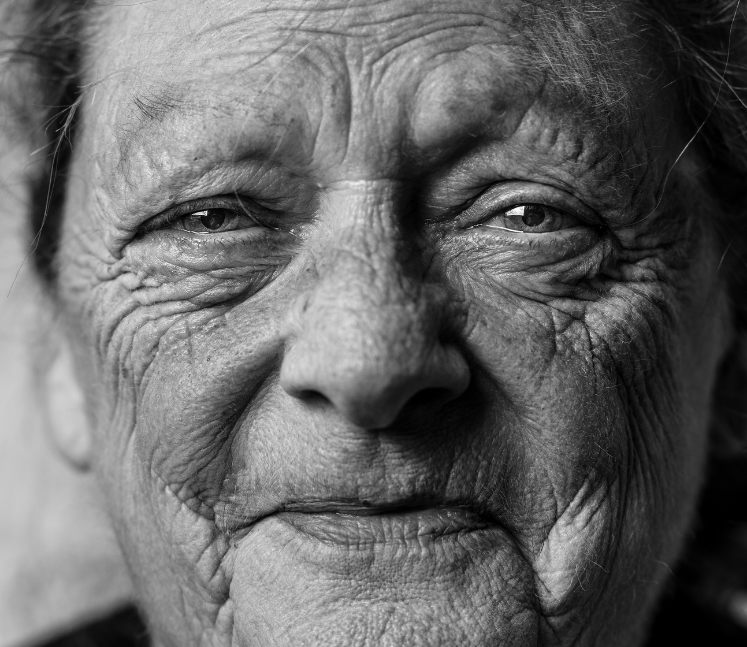Those who continue in some form of work while drawing a pension are happier than those who retire completely, Professor Sarah Ashwin has found. A combination of work and a pension might just be one way to respond to the growing challenges of our ageing society.
 According to research, working whilst collecting a pension has distinct benefits for men and women.
According to research, working whilst collecting a pension has distinct benefits for men and women.
Svetlana, 71, shows no sign of stopping her work as a biochemist in Russia.
“I like working,” she says. “I see that I am needed, necessary. I see that I make a contribution and at the same time I understand that other people value the professional way I do my work … I’m not just a grandmother sitting on the bench.”
According to the World Health Organization, life expectancy across the world increased by more than six years between 2000 and 2019 - from 66.8 years to 73.4 years.
Can our pension systems cope with an ever-increasing ageing population? And do these systems need to be under so much pressure given the increased recognition, in recent years, of older people’s right to work?
Policy-makers across the world have responded to these questions by progressively raising retirement ages while restricting pension entitlements, but an alternative approach is to encourage those who are collecting their pension to remain in some form of employment.
Of course, if you need to be physically strong for your work, you may not be able to continue to do it while collecting a pension. But many jobs are rewarding without being physically exerting and can be done - at least to some extent - by those old enough to be drawing a pension.
Working while collecting a pension is one of the secrets to wellbeing in our later years, Sarah Ashwin, Professor of Comparative Employment Relations in LSE’s Department of Management, has discovered.
Professor Ashwin’s research, carried out with colleagues at the University of St Andrews and the National Research University Higher School of Economics in Moscow, is about to be published by the American Journal of Sociology.
Her team analysed the subjective wellbeing of 5,703 45- to 70-year-olds. The research was among Russians because until 2016, there was no financial penalty in Russia for working while drawing a pension and so pensioner employment there is comparatively high and socially diverse.
The pensioners they studied, who included Svetlana, were relatively young by UK standards, reflecting retirement ages in Russia and the fact that those who work in adverse working environments and extreme weather conditions have the right to retire earlier than others.
Professor Ashwin and her colleagues found that both men and women were happier - or showed higher subjective wellbeing - if they worked while drawing a pension, as opposed to retiring. But, fascinatingly, men and women’s reasons for a more positive outlook were different.
For men, it was about the extra income they gained as a result of working as pensioners; they could continue to identify as ‘breadwinners’.
For women, it was not just about the extra earnings - although this played a part - it was the enhanced status, or social recognition, of their role outside the home that made a difference.
“Our interviews suggest women pensioners are more likely to garner social recognition in the workplace than in ‘retirement’, even when employed in low-status work,” Professor Ashwin says. “Their employment also raises their status within the household. Women’s contribution to the household is more likely to be ‘invisible’ and therefore not confer social recognition.”
But Professor Ashwin is clear that working while receiving a pension is a very different proposition to raising the statutory retirement age.
“Delayed retirement has potentially adverse consequences for employees lower down the occupational hierarchy, particularly those in more physically arduous jobs who are forced to work for longer,” she argues.
“Without the decommodifying support of pensions, the breadwinning pressures experienced by low-income men would be intensified and without pensions, older men and women would have to earn significantly more to achieve the same subjective well-being boost from their income, which would likely be challenging especially for those in physically demanding employment."
According to the United Nations, by 2050, there will be more over 60s than those aged between 10 and 24.
Rather than raise pension ages, Professor Ashwin’s research shows that working while drawing a pension may well be one of the solutions to the complex challenges of our ageing society.
Now might be the time to encourage a different type of retirement.
The research quoted in this article is entitled 'Pensioner Employment, Well-Being, and Gender: Lessons from Russia', published in the American Journal of Sociology, by Sarah Ashwin, Katherin Keenan and Irina M. Kozina.